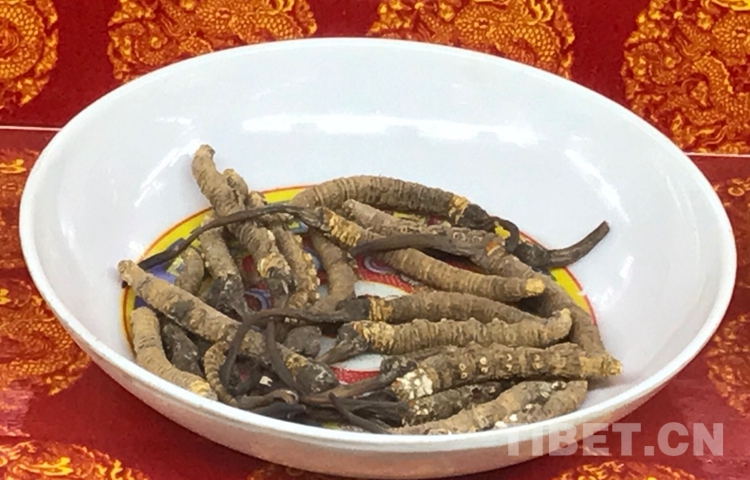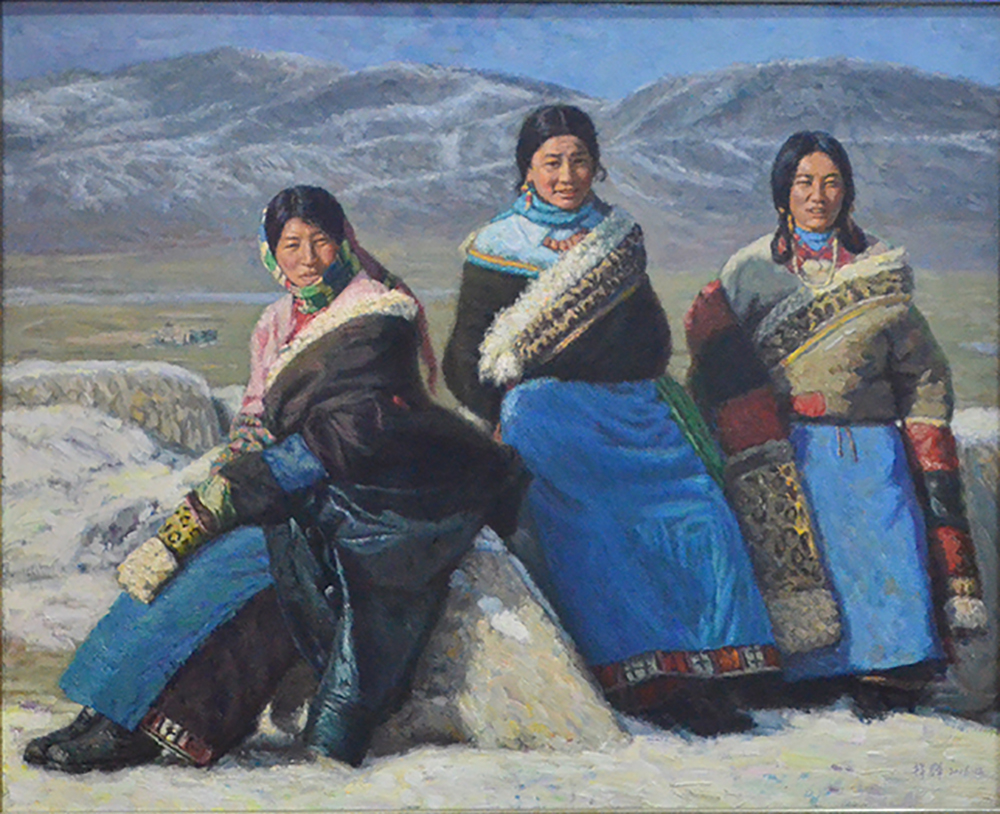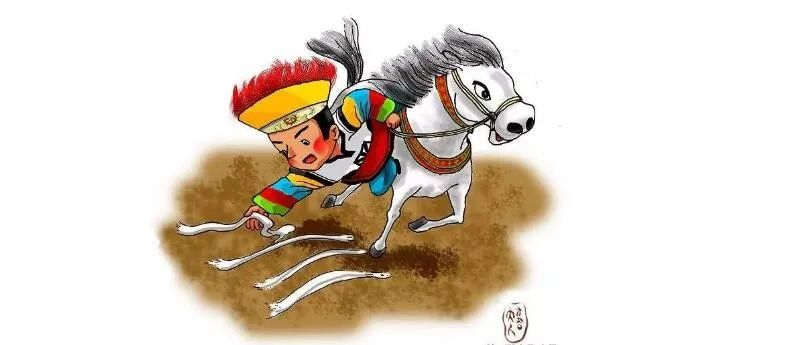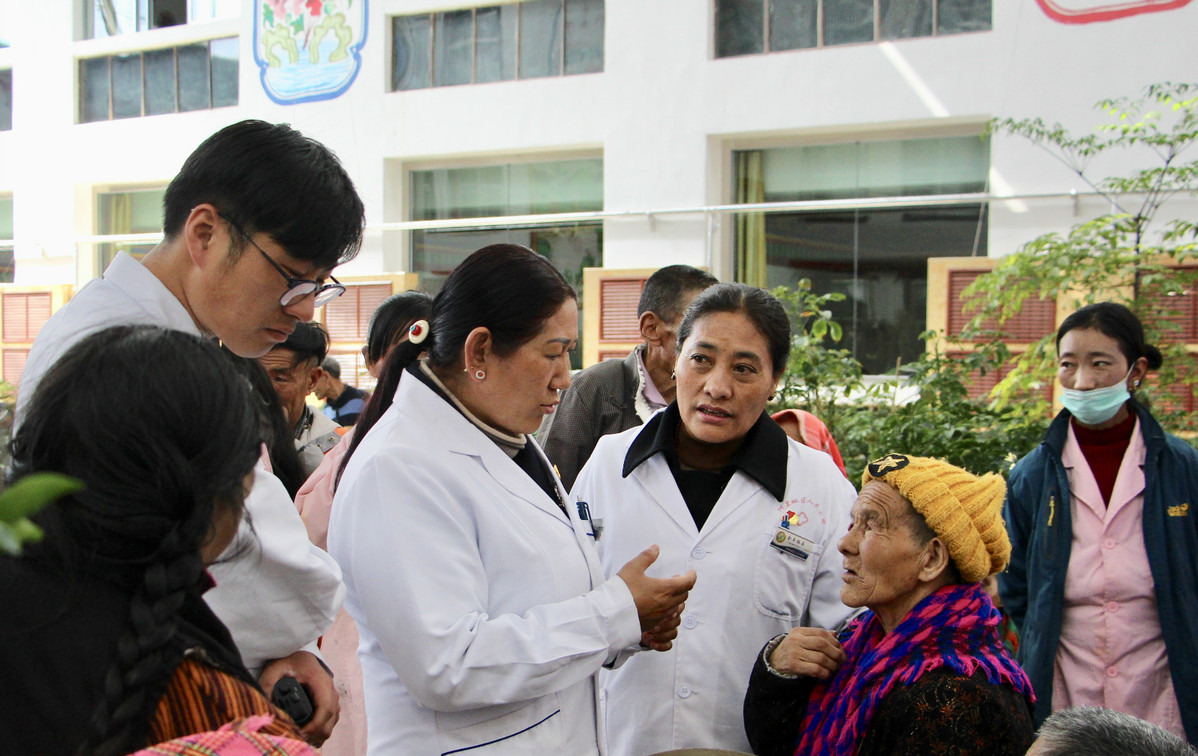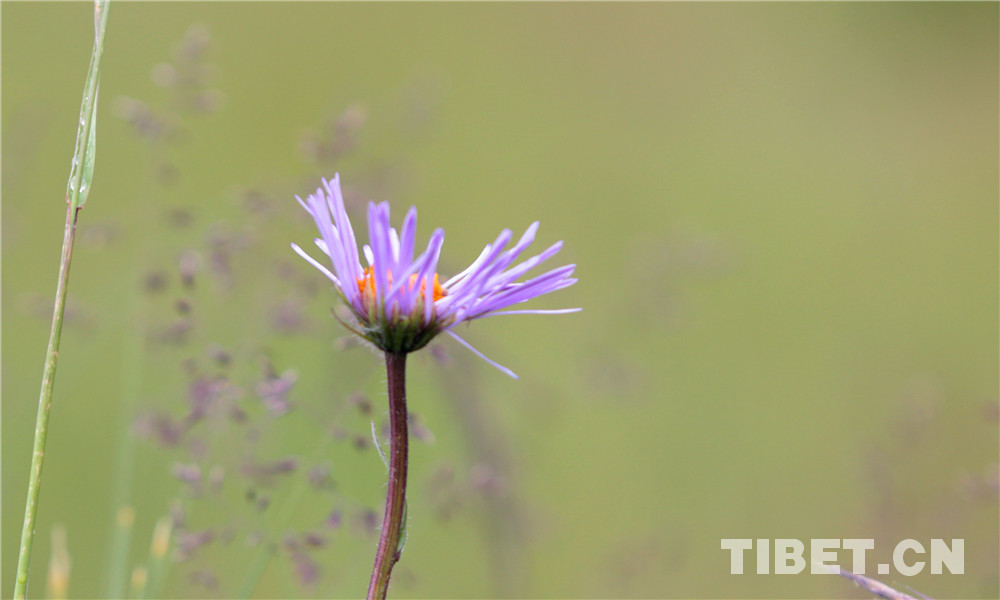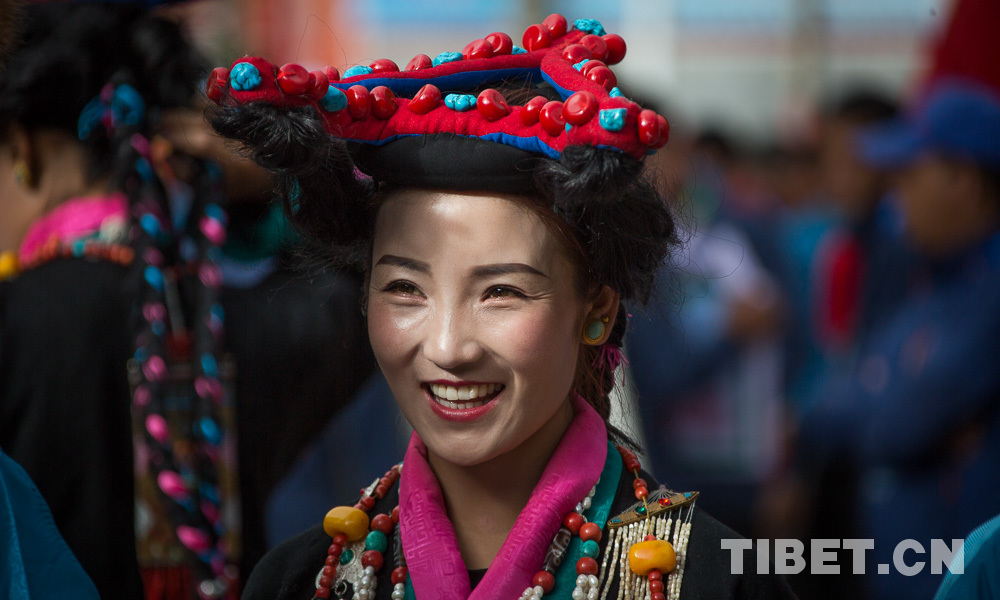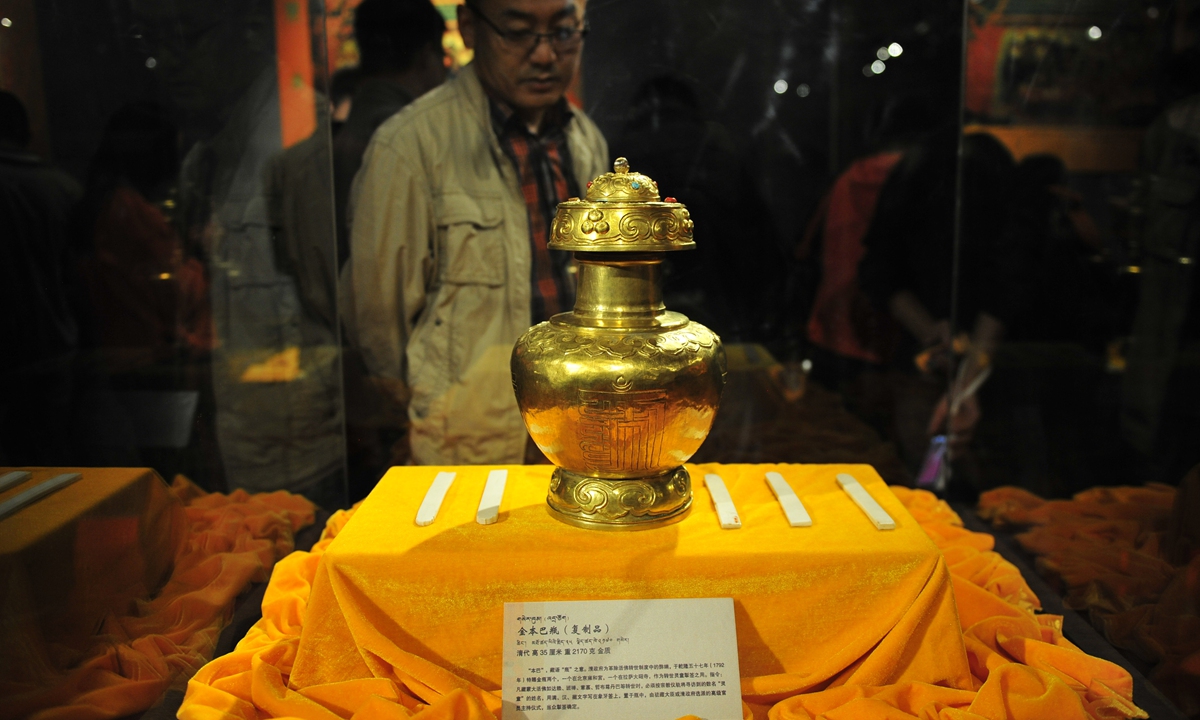Observing historical convention: reincarnation of Tibetan living Buddhas under central govt jurisdiction
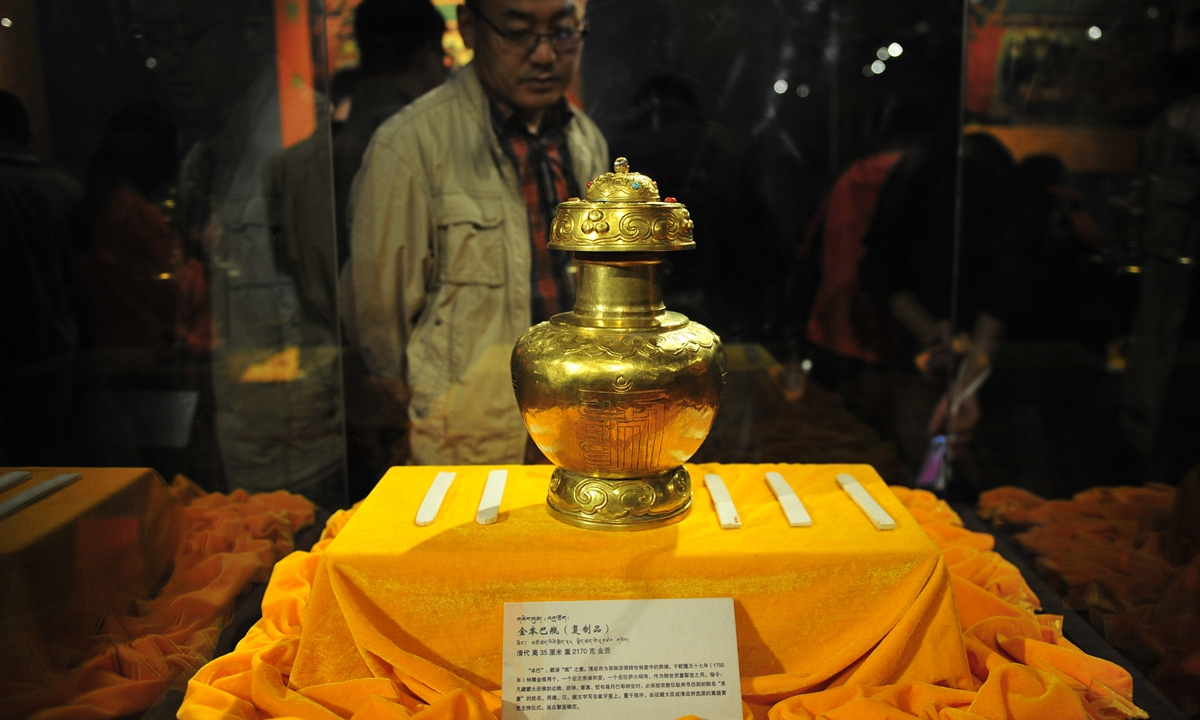
A replica of the golden urn and ivory slips bestowed by the Qianlong Emperor of the Qing Dynasty to the Eighth Dalai Lama is on display at a museum in Lhasa, Tibet Autonomous Region, August 11, 2014. Photo: cnsphoto
On December 27, US President Donald Trump signed the so-called "Tibetan Policy and Support Act of 2020" - a bill grossly interfering in China's internal affairs. The bill claimed that the person who reincarnates has "sole legitimate authority" over "where and how he or she takes rebirth and how that reincarnation is to be recognized and if there is a need for a 15th Dalai Lama." It also smeared the Chinese government's handling of the reincarnation process, which is in accordance with the law, as a violation of so-called "religious freedom."
It is well-known that the reincarnation of the living Buddhas is by no means a purely religious affair, let alone an “authority” of those who reincarnate claimed by those with ulterior motives.
Golden urn lot-drawing
The reincarnation of the living Buddhas initially appeared to settle the problem of the succession of leaders of Tibetan Buddhist sects. In old Tibet, which adopted a "theocratic" system, the Tibetan people who believed in Buddhism obeyed religious leaders. Due to the prominent and leading role of the influential living Buddhas, various political and religious forces in Tibetan society vied for dominant power and control over the reincarnation of the living Buddhas. This has led the reincarnation system to gradually lose its original meaning and cause great harm to the Dharma as well as endangering social stability and national security. Therefore, the then central government adopted the system of lot-drawing from a golden urn in 1793 to improve the reincarnation order of the living Buddhas. The system not only helped to prevent malpractices in the reincarnation of living Buddhas, but also showed respect for the principles and traditions of the reincarnation of living Buddhas as well as the sentiment of believers. Moreover, it shows the authority of the central government over the reincarnation process.
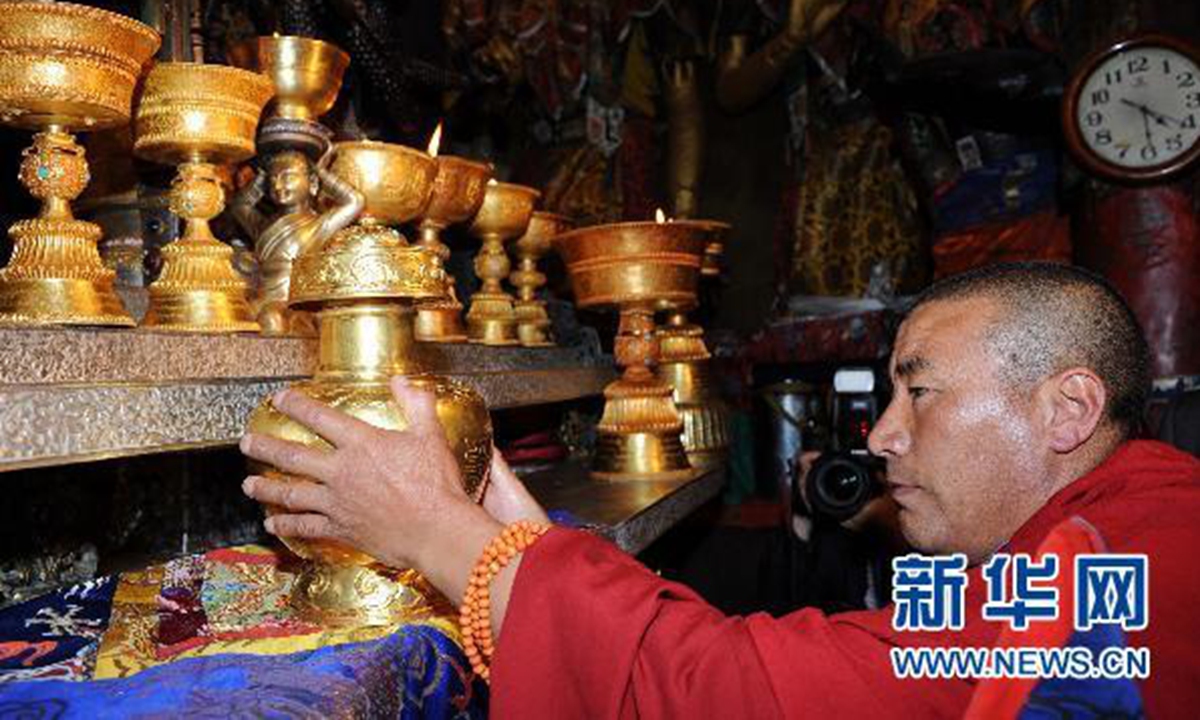
The ceremony of lot-drawing from a golden urn for the reincarnation of the Fifth Living Buddha Dezhub is held in Lhasa on July 4, 2010. The young living Buddha, whose secular name is Lobsang Dorje and born in Shannan was selected as the reincarnation of the Fifth Living Buddha Dezhub, who passed away in March 2000. Photo: Xinhua
To eliminate corrupt practices in the reincarnation of living Buddhas, Emperor Qianlong of the Qing Dynasty (1636-1912) responded to the request of the Eighth Dalai Lama and ordered officials in Tibet to discuss the regulations after the victory of expelling the Gurkha invasion in 1792. In the following year, the Qing government issued an imperial decree - the 29-Article Ordinance for the More Efficient Governing of Tibet. Article one of the Ordinance clearly stipulates that "in order to ensure the Yellow Sect continues to flourish, the Grand Emperor bestows it with a golden urn and ivory slips for use in confirming the boy possessing the reincarnated soul of a deceased living Buddha. For this purpose, four major Buddhist Guardians will be summoned; the names of candidates, as well as their birth years, will be written on the ivory slips in three languages - Manchu, Han Chinese and Tibetan; the ivory slips will be placed into the golden urn and the prominent living Buddhas will pray for seven days before various Hotogtu Living Buddhas and the resident minister of the central government officially confirm the boy with the reincarnated soul by drawing a lot from the golden urn in front of the statue of Sakyamuni in the Jokhang Monastery." As for the confirmation of the boys with the souls of the Dalai and Panchen, "the same practices should be conducted and they were designed to allow the flourishing of the Yellow Sect and to avoid cheating from the guardians."
After the ordinance was released, the Tibetan regional government translated it and relevant documents into Tibetan and promulgated and implemented them as the most important legal instruments at that time. Meanwhile, the Eighth Dalai issued an official statement stipulating the specific methods of conducting lot-drawing from the golden urn.
After the issuance of regulations regarding the lot-drawing from a golden urn, the central government of the Qing Dynasty also included them into its legal documents as a historical convention of the central government's management of the reincarnation of the living Buddha. The fundamental purpose of this system is to eliminate malpractices and manipulation during the confirmation of the boy with the soul and the system fully conforms to the basic idea and universal value of the rule of law, emphasizing equality and opposing privilege.
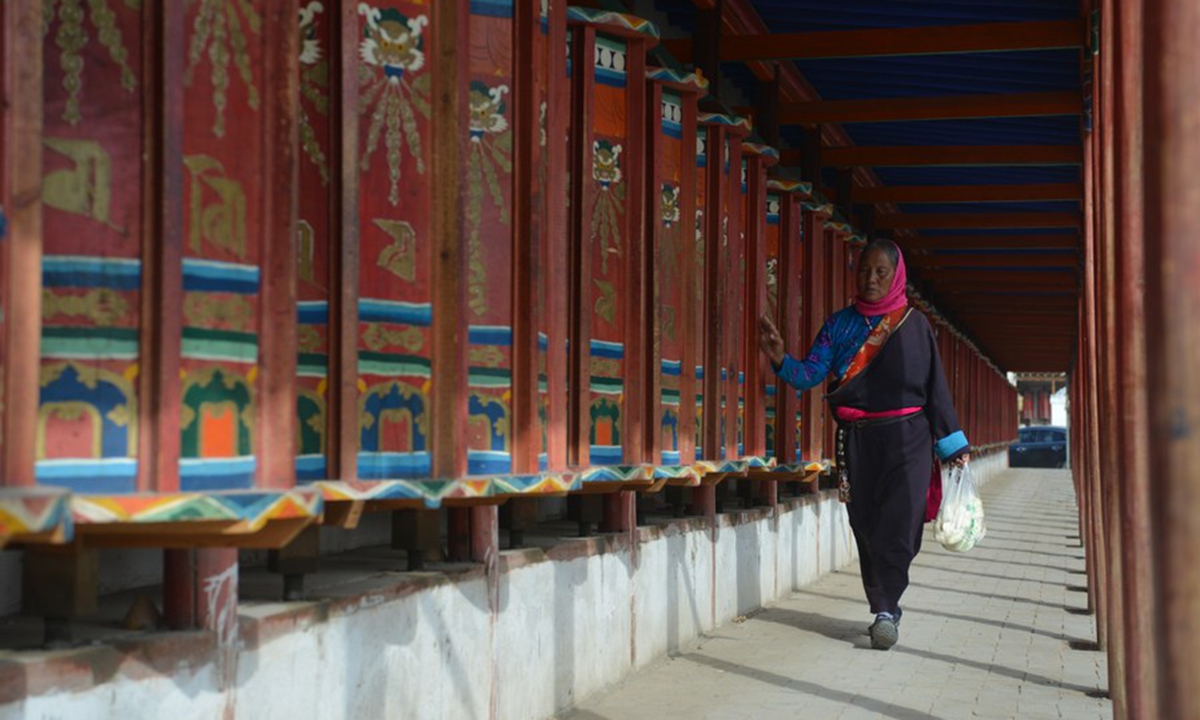
A follower of the Tibetan Buddhism spins prayer wheels for blessing outside the Rongwo Monastery in Tongren County of Huangnan Tibetan Autonomous Prefecture, northwest China's Qinghai Province, July 23, 2019. (Xinhua/Zou Yu)
Approval from the central government
The establishment of the reincarnation of the living Buddhas system is inseparable from the support of the central government, thus forming the ultimate authority of the central government in the process. It has also become a historical convention for the central government to approve the succession of the influential living Buddhas.
In 1288, Rangjung Dorje was enthroned in Tsurphu Monastery, forming the reincarnation system called black hat lineage of Karma Kagyu sect, since Emperor Xianzong of Yuan Dynasty (1271-1368) previously bestowed a black hat with golden brim to his predecessor Karma Pakshi. This black hat has become the symbol of the Gyalwang Karmapa succession system of the Karma Kagyu Sect and it also showed the authority of the central government in the system of the living Buddhas reincarnation.
In 1332, Rangjung Dorje was summoned to Dadu (now Beijing) to pay respects to the emperor. Emperor Shundi conferred him titles and awarded him decrees and seals. Through the conferment, the legal identity and status of the reincarnation of the living Buddha of Rangjung Dorje were confirmed by the central government of the Yuan Dynasty, and the reincarnation was endowed with legal meaning and legitimacy. This further promoted the development of the living Buddhas reincarnation system.
In 1653, the Fifth Dalai Lama journeyed to Beijing to pay homage to Emperor Shunzhi. The Qing emperor granted him the honorific title of "the Dalai Lama, Overseer of the Buddhist Faith on Earth Under the Great Benevolent Self-subsisting Buddha of the Western Paradise." Since then, the system of conferring the reincarnation of successive Dalai Lamas by the central government has become a convention.
The current Dalai Lama was enthroned in the Potala Palace on February 22, 1940, during a ceremony presided over by Wu Zhongxin, minister of the Commission for Mongolian and Tibetan Affairs of the nationalist government of the Republic of China (1912-49). The nationalist government ordered that he be confirmed as the boy with the reincarnated soul of the 13th Dalai Lama without the requirement of carrying out the established method of drawing a lot from the golden urn and that he instead directly become the 14th Dalai Lama. Therefore, the legitimacy of the 14th Dalai Lama came from the approval of the then nationalist Chinese government.
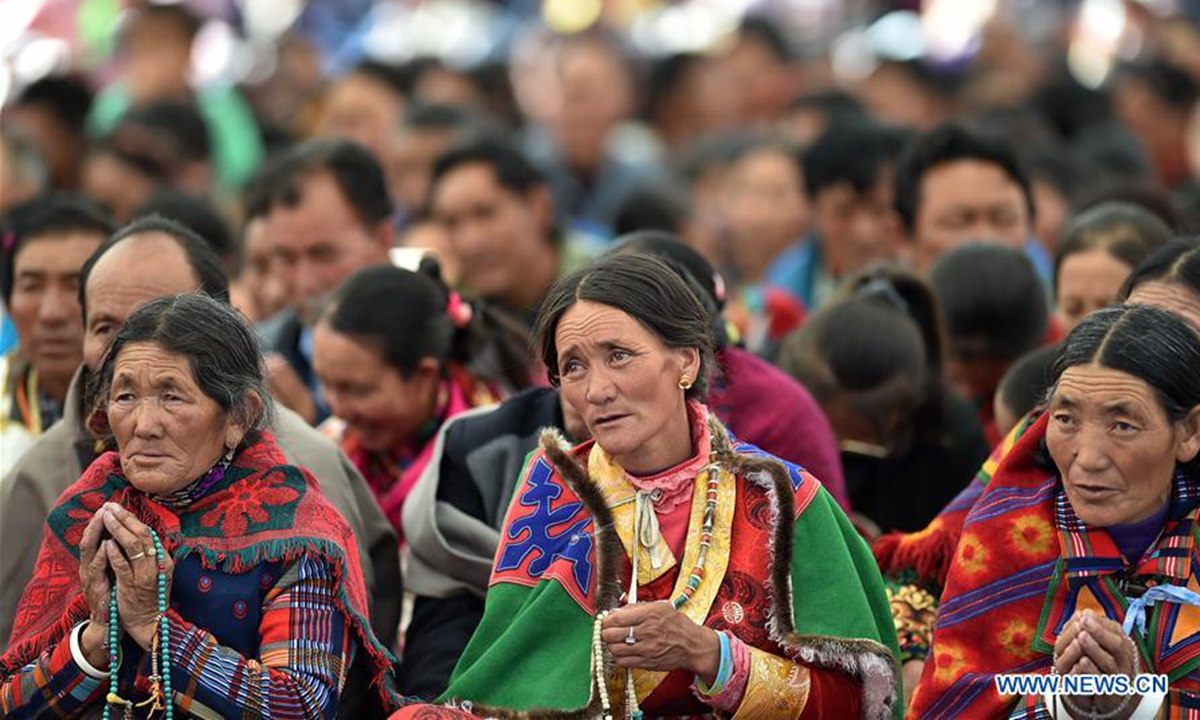
File photo: Xinhua
The conferment of the living Buddha is not only a system of bestowment, but also a management system. It not only reflects the central government's care and attention to the influential living Buddhas, but also demonstrates the central government's standardization and strengthening of their management. At the same time, it emphasizes that the living Buddhas conferred by the central government must remain loyal to it and assume related responsibilities and obligations. The central government has the ultimate authority over the reincarnation of the living Buddhas through the system of conferment.
In November 1995, the then chairman of the Chinese Buddhist Association Zhao Puchu, stressed at a meeting that no matter what the Buddhist sect is, they all must uphold three principles in the reincarnation of soul boy which include lot-drawing from a golden urn, respecting the authority of the central government and the trust of the masses. Therefore, in terms of the reincarnation of living Buddhas, state power and the central government's authority have always been given top priority, which is reasonable, legitimate and fully in line with the fundamental teachings of Buddhism.
According to the historical convention, the reincarnation of important living Buddhas should first be reported to the central government for approval through the local government by the monastery he once resided in, and the establishment of a reincarnation searching organization for the soul boy should be approved by the central government.
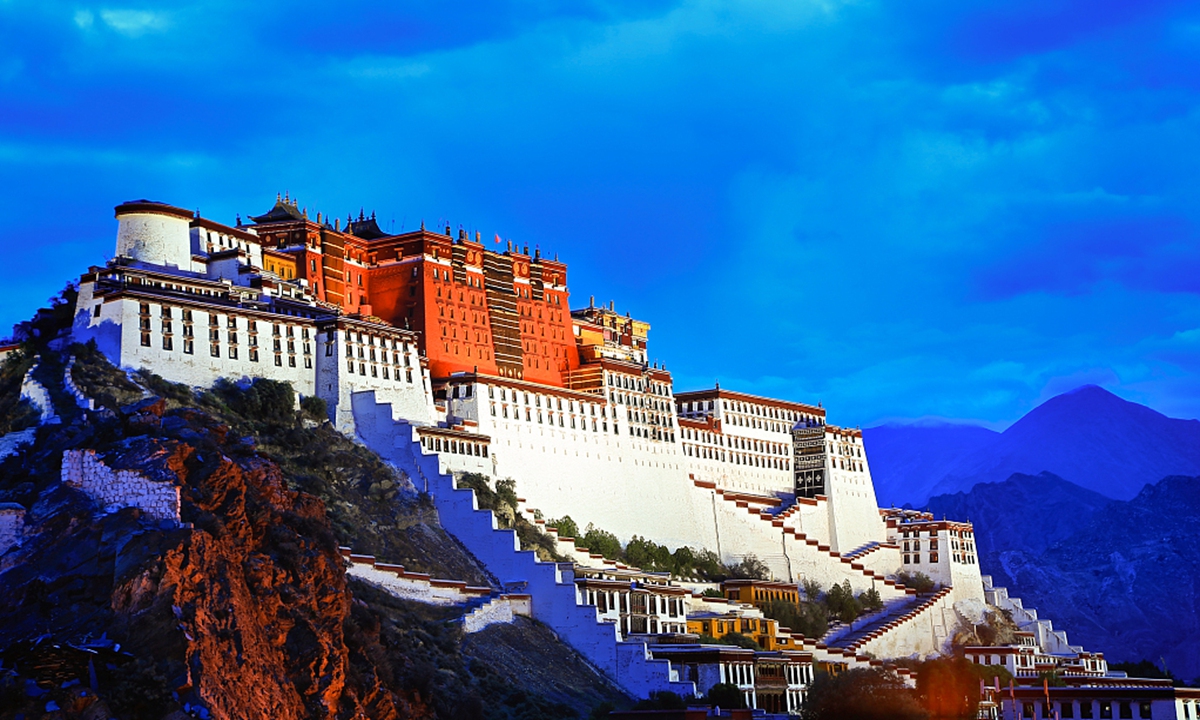
Potala Palace Photo: CFP
Before implementing the golden urn lot-drawing system, the local government should report to the central government first on the soul boy candidates they find in accordance with religious rituals and request permission to hold the golden urn lot-draw. After the approval of the central government, a date will be chosen to conduct the golden urn lot-drawing, presided over by the delegate from the central government in front of the Buddha statue of Sakyamuni. Once lot-drawing from the golden urn is completed, officials in charge of the process, local government officials, and those in charge of searching for the soul boy should report the situation and result to the central government as well as the proposed date of enthronement for approval. After approval by the government for the succession of the soul boy for the date of enthronement, the ceremony can be conducted. In the history of enthronement ceremony of Dalai and Panchen, the central government always sent a special representative to preside over or oversee it. After the ceremony finishes, Dalai or Panchen is required to show his gratitude to the central government.
The approval of the succession of the influential living Buddhas by the central government reflects the state's sovereignty over Tibet and its authority in the identification of the reincarnation of the living Buddhas. It also reflects political power being above divine power and the concept of governing the country in accordance with the law.
Every country in the world manages its religious affairs according to the law which is irrelevant to the belief of "atheism" or "theism." It is the inevitable requirement of national sovereignty and governmental responsibility. It embodies the protection of the law, prevents malpractices, resists external interference and fights crime and its ultimate goal is to protect the lawful rights and interests of the religion and its followers. Therefore, it is bound to obtain wide support and advocacy from religious figures and believers alike.
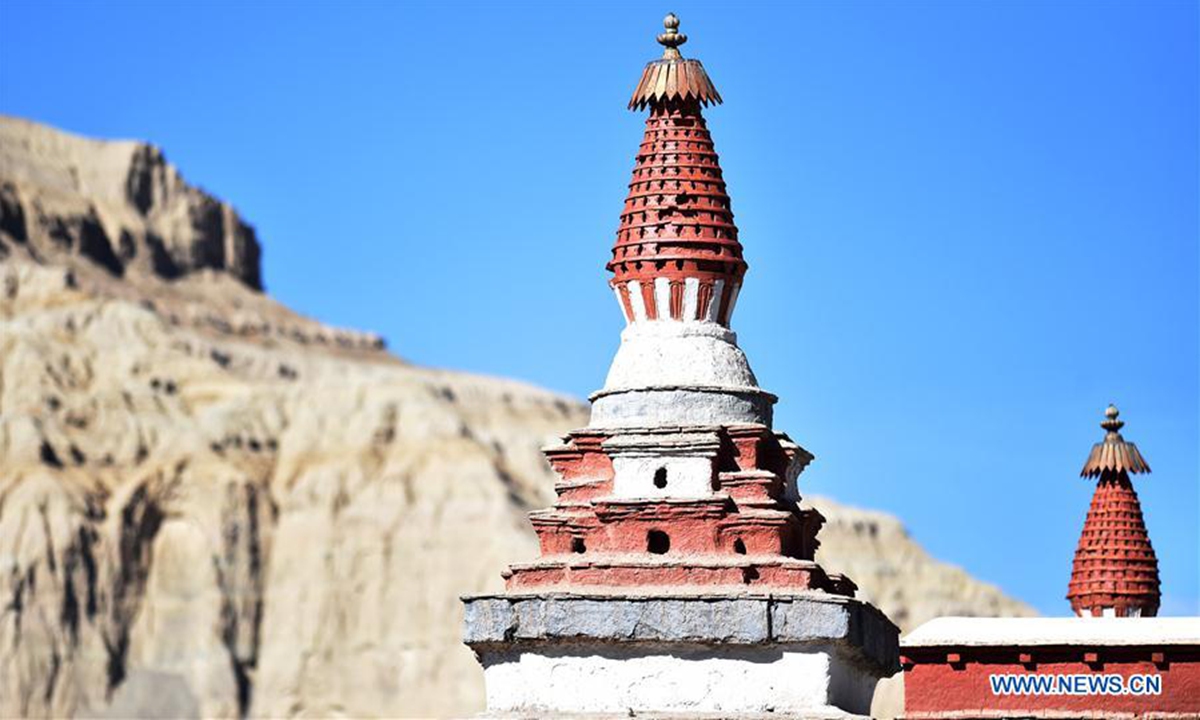
File photo: Xinhua
The search for reincarnation should be in China
Historically, the reincarnation of living Buddhas has always adhered to the principle of searching in China, and there has never been a precedent in searching abroad. This is an important principle that the reincarnation of living Buddhas must follow.
China is home of Tibetan Buddhism, which is the product of the Sinicization of Buddhism and is a localized religion in China. Tibetan Buddhism has been integrated with traditional Chinese culture and become Sinicized Buddhism completely in religious ideas and thoughts, religious emotion and experience, religious behavior and activity and religious organization and system.
The main areas of propagation and religious adherents of Tibetan Buddhism are in China, and the hereditary lineage of the reincarnation of the living Buddhas originated in China, belonging to Chinese monasteries. The management of reincarnation is an inseparable part of the administration of China's religious affairs. It is an indisputable historical fact that the reincarnation system should adhere to territorial management and the principle of searching for soul boys domestically.
There is no border for religions, but believers have their own countries. The Drepung Monastery is the home temple of the Dalai Lamas and every Dalai Lama was identified within China. There is no precedent for searching abroad. The feelings of belonging and the sentiments of the believers are important factors in searching for the reincarnation of a living Buddha. The reincarnation of any living Buddha can never be separated from his home temple and the land where he was raised on.
On July 4, 2010, the lot-drawing ceremony for the boy with the soul of the fifth Living Buddha Dezhub was held in Lhasa. The young living Buddha, whose secular name is Lobsang Dorje and born in Shannan was selected as the reincarnation of the Fifth Living Buddha Dezhub, who passed away in March 2000, through lot-drawing from an golden urn. He was chosen as a candidate after years of searching by senior monks according to religious practice and traditions.
The Panchen Lama also gave him the religious name Dezhub Jamyang Sherab Palden. This was the first reincarnation of a living Buddha selected by lot-drawing from a golden urn after the promulgation of the Measures on the Management of the Reincarnation of Living Buddhas in Tibetan Buddhism in 2007.
The whole process of searching and confirmation adhered to religious rituals, historical convention, the system of lot-drawing from a golden urn and the government's approval. This marks remarkable achievements in standardizing and legalizing the management of the affairs regarding reincarnation of living Buddhas under socialist conditions, and also fully reflects the practical implementation of the policy of freedom of religious belief.
The history of the management of the reincarnation of living Buddhas showed that every central government cared about the people in Tibetan Buddhist circles and the positive tradition of Tibetan Buddhists loving the nation, loving the religion, protecting the country and benefiting the people. Under the current conditions, adherence to the historical conventions and important principles for the reincarnation of living Buddhas is a necessary condition for maintaining the normal order of Tibetan Buddhism and maintaining religious and social harmony. The so-called US "act" will only make itself become the laughing stock of the world for its naked interference in other countries' internal affairs and its ignorance.
The author is a research fellow of the China Tibetology Research Center
Tibet Stories
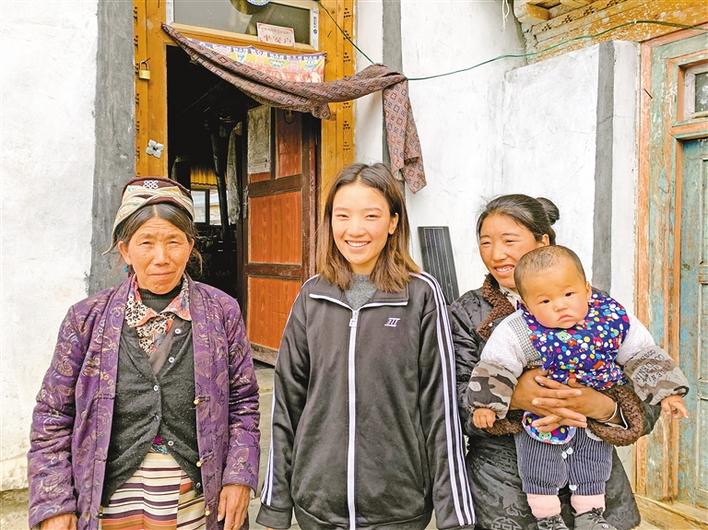
Happy life of Tsering Yuzhen’s family
Every time it rained, the house leaked. In 2016, the government helped us renovate and expan...
